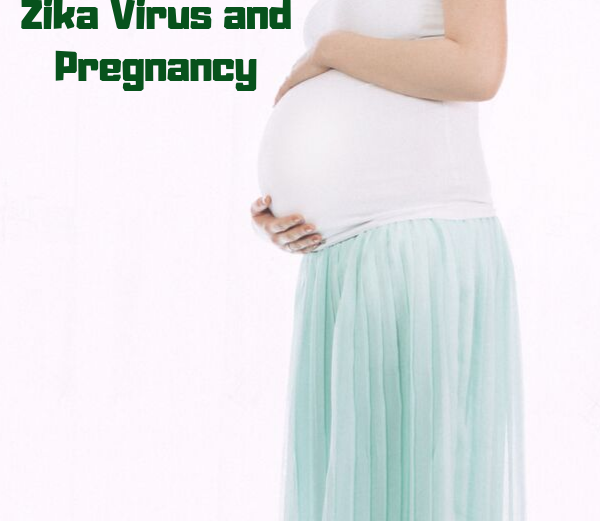Zika Virus & Pregnancy
What is Zika virus?
Zika virus is a disease which is spread to humans initially through bites from an infected species of mosquito. The nature and symptoms of the disease in healthy people means that people often don’t become ill enough to warrant a visit to their doctor or healthcare professional, so many people might not be aware they have been infected. It is rare for a person to die of Zika, although those with compromised immune systems such as the very old, very young and pregnant women are thought to be more at risk.
Zika virus and microcephaly
In May 2015 the Pan American Health Organization (PAHO) issued an alert regarding the first confirmed Zika infection in Brazil, and on Feb 1, 2016, The World Health Organization (WHO) declared Zika virus a public health emergency of international concern (PHEIC).
Until recently, experts believed there was a potential link between Zika and microcephaly, a birth defect causing abnormal smallness of the head, developmental problems in young children and other neurological disorders. However, on April 13th 2016, scientists at the Centers for Disease Control and Prevention (CDC) confirmed, after careful review of existing evidence, that Zika virus is a cause of microcephaly and other severe fetal brain defects in babies, marking a turning point in the Zika outbreak.
Microcephaly is a birth defect where a baby’s head is smaller compared to babies of the same age and sex.
Babies with microcephaly have smaller brains that might not develop properly and develop severe intellectual disabilities.
The CDC is launching further studies to determine whether children who have microcephaly born to mothers infected by the Zika virus are just a small proportion seen, in terms of the damaging effects Zika could have on the brain and other developmental problems.
Official guidance remains that pregnant women, those looking to conceive, and their partners, should take steps to avoid Zika infection by meticulously practicing mosquito bite prevention.
The CDC also advises pregnant women to avoid travel to areas where Zika is actively spreading such as Brazil and more than 20 other global territories.
How is Zika virus transmitted?
Zika is primarily transmitted to humans through the bite of an infected Aedes species of mosquito. Once a person has been infected, he or she is likely to be protected from future infections.
Can Zika virus be passed from person to person?
More has become known about the virus transmission as the outbreak has unfolded and experts now firmly believe it can be transmitted from mother to child. Whilst there have been no reported cases of transmission via breastfeeding, it is believed a mother who is almost full term and becomes infected with the Zika virus can pass it onto her newborn around the time of birth.
What are the symptoms of Zika Virus and how long do they last?
In healthy people, the most common symptoms of Zika infection can be mild and include skin rash and mild fever, usually accompanied by conjunctivitis (pink eye). Other symptoms can include general feeling of being unwell, muscle, joint pain and headache.
The incubation period from exposure to developing symptoms is typically a few days to a week after being bitten by an infected mosquito and normally lasts for around 4-7 days. Zika usually remains in the blood of an infected person for about a week but it can be found to be longer in some people.
Can you be vaccinated against Zika virus?
There is currently no vaccine to protect against Zika virus. Although research is underway to develop a vaccine, it is likely to be some years before it is ready for use on the general population. This is why taking steps to prevent mosquito bites in high risk areas is key.
How is Zika virus treated?
There is no specific treatment for Zika virus. Always seek urgent advice from your doctor or healthcare professional if you feel unwell and you suspect that you have been exposed to the Zika virus.
What can I do to protect myself and my family against Zika virus?
Take meticulous precautions against bites by covering exposed skin and using a repellent containing an active ingredient registered with the U.S. Environmental Protection Agency (EPA).
Bite prevention tips
- Being prepared is key in reducing the risk of being bitten
- In high risk areas, cover as much exposed skin as possible with lightweight long-sleeved tops and trousers
- Choose accommodation with air conditioning and screens on windows and doors
- Avoid areas of standing water such as lakes and reservoirs, where mosquitoes thrive
- Apply a thin, even layer of a mosquito repellent proven to be effective, to exposed skin
- Use insect repellents safely. Always read the label and product information before use
Is Mosi-guard Natural effective against the mosquitoes that transmit Zika virus?
Mosi-guard Natural repellents have been tested against various Aedes mosquitoes which spread the Zika Virus, including Aedes aegypti.
Tests have been performed in laboratories and in the field and shown 100% protection for up to 6 hours at 30% concentration and over 7 hours at 40% concentration.
Mosi-guard Natural is suitable for all the family, including children from six months of age and pregnant and breastfeeding women. The active ingredient in Mosi-guard Natural, Citriodiol® (also known as Oil of Lemon Eucalyptus) and Eucalyptus citriodora oil hydrated, cyclized EC Oil (H/C) is EPA registered.
Derived from essential lemon eucalyptus oil, Citriodiol® is the only naturally sourced active ingredient recommended by the CDC for protection against mosquito borne disease.
Most-guard Natural is also free from DEET (N,N-diethyl-meta-toluamide) a man-made chemical which is known to damage plastics. To date it is worth noting that there are few published studies addressing the effects of DEET in mothers-to-be and their offspring and no studies involved pregnant women in the first trimester.
– Information in this article is obtained from Mosi-guard®

